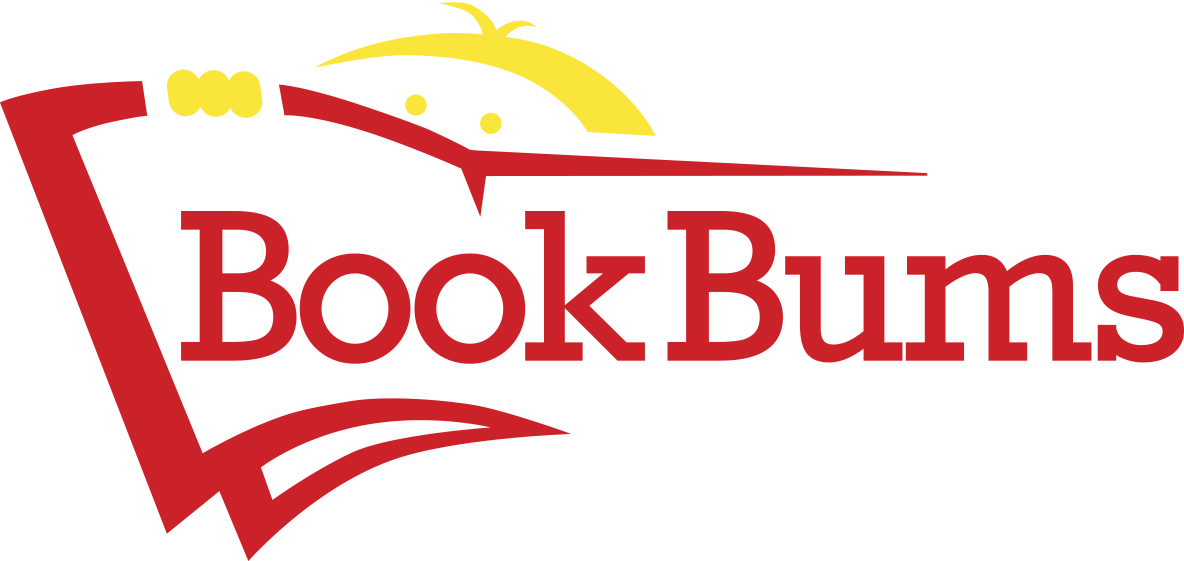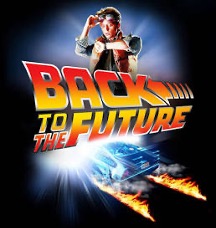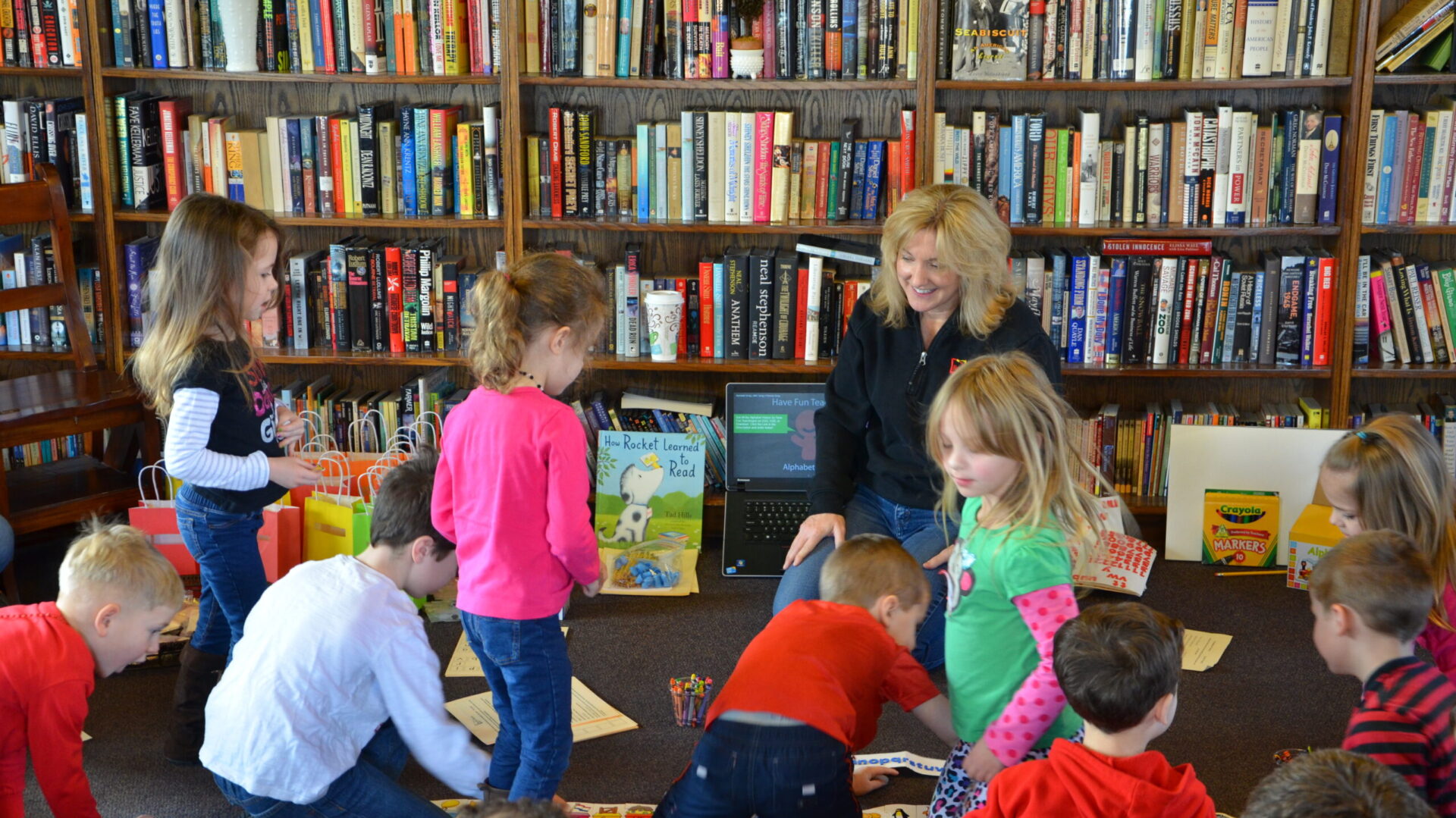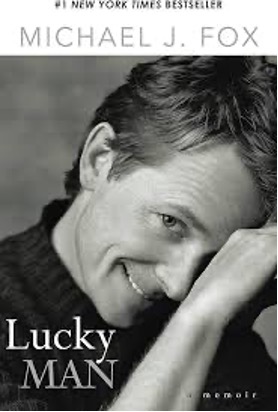
Hello Book Bums families!
This week in the newsletter we're thinking about words. You'll find gratitude and perseverance in our book recommendation. We share variety and focus in our tips for families and teachers. And in the holiday spirit we have song lyrics, puns, and more. Read on and enjoy!
Bookbums.com is an Amazon Associate; We earn from qualifying purchases. This means that if you click on a link to Amazon.com and make a purchase, We may earn a small commission at no extra cost to you. We do recommend the products. Feel free to find them by other means.
Word of the Week
enigma (e-nig-muh) noun/person, place, or thing - something hard to understand or explain, a mystery
The new student was still a bit of an enigma; no one had gotten to know them well yet.
Literary Calendar
- December 25 is A'phabet Day or No L Day.
- No L = Noel... Get it?
From our Bookshelves
My sister-in-law gave me a copy of Lucky Man, by Michael J. Fox. Though it had been on my “to read” pile for a while, I finally read it and enjoyed it. Though I would not have identified as a Michael J. Fox fan, I can say that I’m a fan now.
~Michael J. Fox
You probably know a bit about Michael J. Fox. He played Alex Keaton in Family Ties, and Marty McFly in Back to the Future.


He even married Tracy Pollan, his love interest on Family Ties. Do you remember this scene and the song “At This Moment” by Billy Vera?
My favorite movie with Michael J. Fox is The American President. This movie was written by Aaron Sorkin (and inspired the writing of his television series The West Wing), and starred Annette Benning and Martin Sheen.
The film was released in 1995—four years after Fox’s diagnosis of young onset Parkinson's Disease (PD), and three years before he acknowledged his illness to the public. In Lucky Man, Fox shares about his life, how he dealt with his illness initially, why he delayed sharing about it, and what he’s doing now.
Michael J. Fox donates the profits from this book to the Michael J. Fox Foundation for Parkinson's Research, which is dedicated to fast-forwarding the cure for Parkinson's Disease. The Foundation strives to find a cure for Parkinson's Disease and improve the quality of life for people living with the condition through aggressively funded research initiatives.
Tips for Raising Readers and Writers
When reviewing kids’ writing, the first things that catch the eyes of teachers and parents are likely blatant errors in spelling, punctuation, and grammar—things that require editing. Revising is likely more important than editing because it involves making substantial changes to the content, structure, and overall flow of the written work. Do you understand the difference between revising and editing?
- Revising vs Editing
Revising focuses on the paper as a whole and involves making structural and logical changes and can include rearranging paragraphs, removing unnecessary text, adding sections, or reformulating arguments. Revising is an opportunity to consider the strengths and weaknesses of a paper and making needed adjustments - Editing focuses on sentence-level issues and involves making changes including fixing spelling, punctuation, grammar, and sentence structure. Editing also involves making sure that the paper conforms to the appropriate style guidelines.
Wordology Workshop
Remember that the Latin roon vis means to see, and the prefix re means again.
So revision literally means to see again.
In the following section, would you say that Judy Garland suggested revising the lyrics, or did she suggest editing them?
Christmas Curiosity

The song "Have Yourself a Merry Little Christmas" was written in 1943 by Hugh Martin and Ralph Blane and introduced to the world by Judy Garland in the 1944 MGM musical Meet Me in St. Louis.
Did you know that the original lyrics to this song were downright depressing?
Here they are:
Have yourself a merry little Christmas.
It may be your last.
Next year we may all be living in the past.
Have yourself a merry little Christmas.
Pop that champagne cork.
Next year we may all be living in New York.
No good times like the olden days.
Happy golden days of yore.
Faithful friends who were dear to us.
Will be near to us no more.
But at least we all will be together.
If the Lord allows.
From now on, we’ll have to muddle through somehow.
So have yourself a merry little Christmas now.
And here are the ones we sing today—thanks to Judy Garland, who fought for more encouraging lyrics.
Have yourself a merry little Christmas
Let your heart be light
From now on
Our troubles will be out of sight
Have yourself a merry little Christmas
Make the Yule-tide gay
From now on
Our troubles will be miles away
Here we are as in olden days
Happy golden days of yore
Faithful friends who are dear to us
Gather near to us once more
Through the years we all will be together
If the fates allow
Hang a shining star upon the highest bough
And have yourself a merry little Christmas now
Here we are as in olden days
Happy golden days of yore
Faithful friends who are dear to us
Gather near to us once more
Through the years
We all will be together
If the fates allow
So hang a shining star upon the highest bough
And have yourself a merry little Christmas now.
Tips for Families

I was talking with my mom about holiday traditions and remembered that my grandma always had mixed nuts and a couple of nutcrackers sitting about at Christmastime. I loved cracking open the nuts and experimenting—deciding which were my favorites. Today, I bet most folks can’t identify nuts in their shells. Can you identify the nuts in this bowl? Which ones are the almonds, Brazil nuts, hazelnuts, pecans, and walnuts? Today, we purchase most nuts that are already shelled, but it might be fun for your kids to learn about nuts and practice cracking them and getting the meats out to enjoy.

Tips for Teachers
One of our Book Bums tutors emailed me about whether phonemic awareness (hearing, reproducing and manipulating the sounds we hear in words) should be taught with or without the representation of letters. I shared with her what the leading experts say about that.
Don’t fall for the idea that the literacy components are learned one at a time in sequence. Good literacy instruction in the early grades is going to focus on decoding (both phonemic awareness and phonics), oral reading fluency (and, initially, things like finger point reading), reading/listening comprehension (including vocabulary), and writing (including spelling). Not one at a time, but all of them in every kindergarten, first and second grade classrooms.
That means get those kids who are still lagging in PA into a good phonics program; it’s time. (Book Bums)
~Dr. Timothy Shanahan
Here’s what I added:
I’m not sure if you’re grappling with Heggerty, but it sounds like that might be it. Heggerty is an approved Ohio resource, but a lot of folks (me included) believe they take PA too far. They tend to promote Phonemic Awareness for Phonemic Awareness’s sake. That’s a mistake. PA is used to equip kids to read and spell. When kids are leaning into their awareness of phonemes and are equipped to read and spell words, no more explicit PA instruction is needed. Spend your time promoting more advanced phonics rules in that time slot. Phonics instruction advances kids’ awareness of phonemes. Those are reciprocal skills.
Practical Grammar

It’s likely that you know someone who misuses the word “literally.”
Literally means something happened exactly as it was described. Figuratively means something is being described in a metaphorical or non-literal way, often using exaggeration or comparison to make a point.
News from Book Bums

Book Bums will be closed from Monday, December 23rd
until Thursday, January 2nd.
Just for Fun
Bookish Facts
Here are some fascinating facts about books that will leave you amazed:
- Roosevelt read an average of one book per day.
- Harvard University Library has four books bound in human skin.
- Iceland tops the world in per capita book reading.
- People who read books are less likely to develop Alzheimer’s disease.
- In Brazilian prisons, reading a book can reduce a prisoner's sentence by four days.
- The most stolen book is the Bible.
- Victor Hugo’s Les Misérables contains a sentence with 823 words.
- Virginia Woolf wrote all her books while standing.
- Leo Tolstoy's wife hand-copied the manuscript of War and Peace seven times.
- There are over 20,000 books written about chess.
- Noah Webster took 36 years to write his first dictionary.
- The Mahabharata is the only book or epic in the world with over 1,200 characters.
- Words like hurry and addiction were invented by Shakespeare.
- If all the books in the New York Public Library were lined up, they would stretch 8 miles.
- The longest novel ever written is In Search of Lost Time by Marcel Proust, with over 1.2 million words.
- The first book ever printed was the Gutenberg Bible in 1455.
- J.K. Rowling is the first billionaire author, thanks to the success of the Harry Potter series.
- Charles Dickens was paid by the word, which is why many of his books are so lengthy.
If you know someone who would benefit from our newsletter or tutoring at Book Bums, please share this email with them! Thank you.
Copyright © 2024 Book Bums, All rights reserved
Our mailing address is:
7967 Cincinnati-Dayton Road Suite L
West Chester, OH 45069


